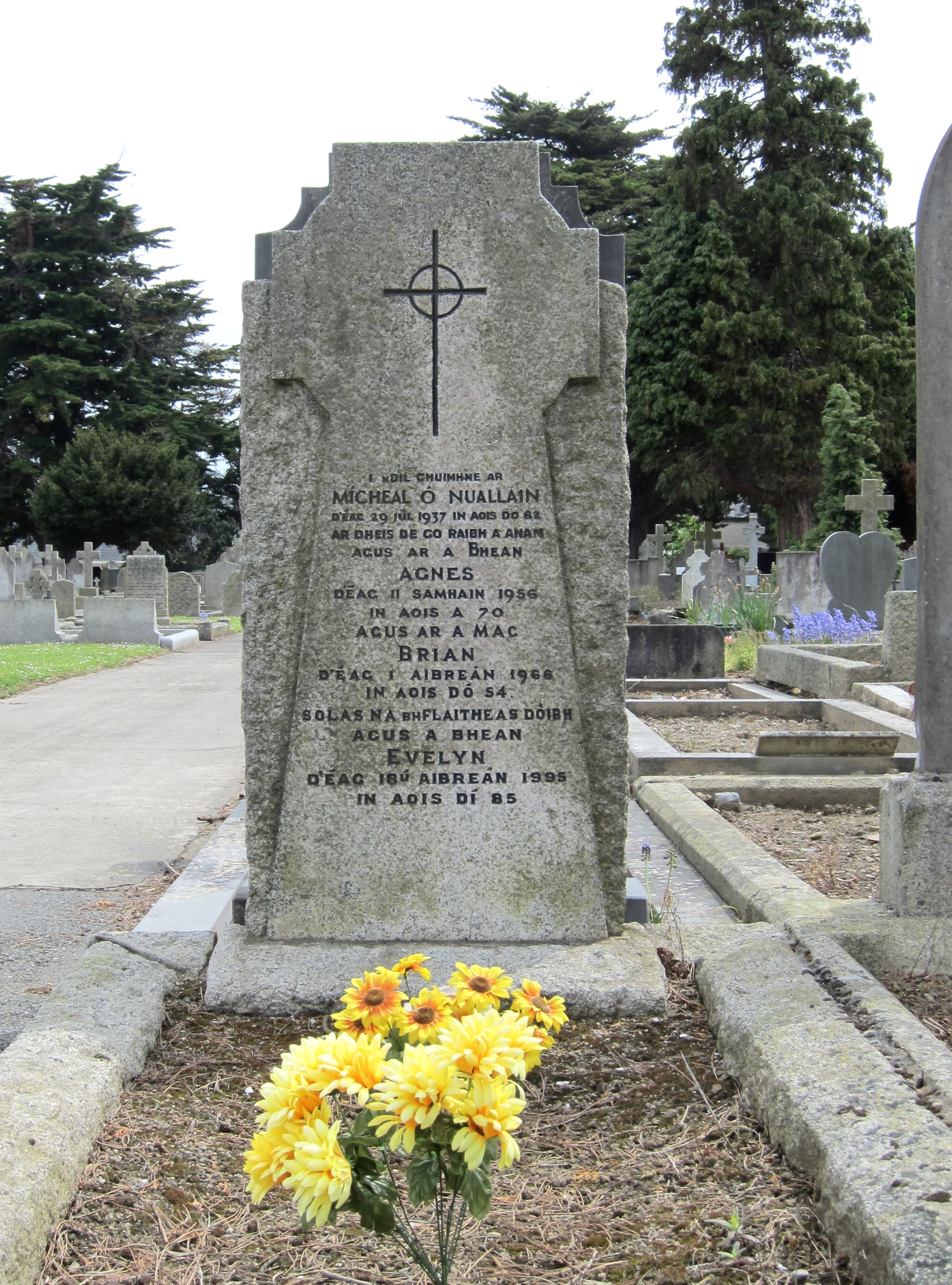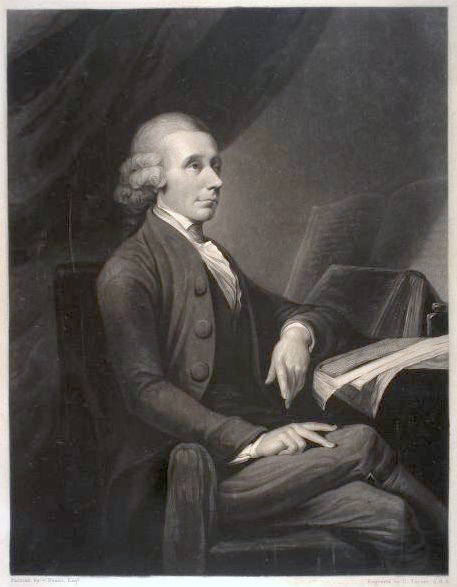|
De Selby
De Selby (spelled "de Selby" in ''The Third Policeman'' and "De Selby" in ''The Dalkey Archive'') is a fictional character originally created by Flann O'Brien for his novel ''The Third Policeman'' in which the nameless narrator intends to use the proceeds of murder and robbery to publish his commentaries on de Selby — a savant who theorizes, among other things, that the earth is actually shaped like a sausage.NPR Books The Funniest, and Scariest, Book Ever Written CHRIS LEHMANN (2006) https://www.npr.org/2006/08/22/5684946/the-funniest-and-scariest-book-ever-written O’Brien's text and footnotes mention a number of de Selby's works including ''Golden Hours'', ''The Country Album,'' ''A Memoir of Garcia,'' ''Layman’s Atlas'' and the ''Codex''. The fictional Bassett and Hatchjaw wrote biographies ''Lux Mundi: A memoir of de Selby'' and ''de Selby’s Life and Times'', both lost. Le Fournier, du Garbandier, Kraus and Le Clerque are supposed sources of de Selby material, but ... [...More Info...] [...Related Items...] OR: [Wikipedia] [Google] [Baidu] |
Flann O'Brien
Brian O'Nolan ( ga, Brian Ó Nualláin; 5 October 1911 – 1 April 1966), better known by his pen name Flann O'Brien, was an Irish civil service official, novelist, playwright and satirist, who is now considered a major figure in twentieth century Irish literature. Born in Strabane, County Tyrone, he is regarded as a key figure in modernist and postmodern literature. His English language novels, such as '' At Swim-Two-Birds'' and ''The Third Policeman'', were written under the O’Brien pen name. His many satirical columns in ''The Irish Times'' and an Irish language novel '' An Béal Bocht'' were written under the name Myles na gCopaleen. O'Brien's novels have attracted a wide following for their unconventional humour and modernist metafiction. As a novelist, O'Brien was influenced by James Joyce. He was nonetheless sceptical of the "cult" of Joyce, saying "I declare to God if I hear that name Joyce one more time I will surely froth at the gob." Biography Family and early ... [...More Info...] [...Related Items...] OR: [Wikipedia] [Google] [Baidu] |
The Third Policeman
''The Third Policeman'' is a novel by Irish writer Brian O'Nolan, writing under the pseudonym Flann O'Brien. It was written in 1939 and 1940, but after it initially failed to find a publisher, the author withdrew the manuscript from circulation and claimed he had lost it. The book remained unpublished at the time of his death in 1966. It was published by MacGibbon & Kee in 1967. Plot summary ''The Third Policeman'' is set in rural Ireland and is narrated by a dedicated amateur scholar of de Selby, a scientist and philosopher. The narrator, whose name the reader never learns, is orphaned at a young age. At boarding school, he discovers the work of de Selby and becomes a fanatically dedicated student of it. One night he breaks his leg under mysterious circumstances – "if you like, it was broken for me" – and he is ultimately fitted with a wooden leg to replace the original one. On returning to his family home, he meets and befriends John Divney who is in charge of ... [...More Info...] [...Related Items...] OR: [Wikipedia] [Google] [Baidu] |
Unseen Character
An unseen character in theatre, comics, film, or television, or silent character in radio or literature, is a character that is mentioned but not directly known to the audience, but who advances the action of the plot in a significant way, and whose absence enhances their effect on the plot. History Unseen characters have been used since the beginning of theatre with the ancient Greek tragedians, such as Laius in Sophocles' ''Oedipus Rex'' and Jason's bride in Euripides' ''Medea'', and continued into Elizabethan theatre with examples such as Rosaline in Shakespeare's ''Romeo and Juliet''. However, it was the early twentieth-century European playwrights Strindberg, Ibsen, and Chekhov who fully developed the dramatic potential of the unseen character. Eugene O'Neill was influenced by his European contemporaries and established the absent character as an aspect of character, narrative, and stagecraft in American theatre. Purpose and characteristics Unseen characters are causal ... [...More Info...] [...Related Items...] OR: [Wikipedia] [Google] [Baidu] |
The Dalkey Archive
''The Dalkey Archive'' is a 1964 novel by the Irish writer Flann O'Brien. It is his fifth and final novel, published two years before his death. It was adapted for the stage by Hugh Leonard in 1965 as ''The Saints Go Cycling In''. by Hugh Leonard, Irish Playography Database. Plot summary The book features a mad scientist, , who tries to destroy the world by removing all the oxygen from the air. He has also many strange inventions. He exploits the theory of relativity and invents a kind of time travelling machine, which he uses to age his whiskey, creating brews that have been aged fo ...[...More Info...] [...Related Items...] OR: [Wikipedia] [Google] [Baidu] |
Oxygen
Oxygen is the chemical element with the symbol O and atomic number 8. It is a member of the chalcogen group in the periodic table, a highly reactive nonmetal, and an oxidizing agent that readily forms oxides with most elements as well as with other compounds. Oxygen is Earth's most abundant element, and after hydrogen and helium, it is the third-most abundant element in the universe. At standard temperature and pressure, two atoms of the element bind to form dioxygen, a colorless and odorless diatomic gas with the formula . Diatomic oxygen gas currently constitutes 20.95% of the Earth's atmosphere, though this has changed considerably over long periods of time. Oxygen makes up almost half of the Earth's crust in the form of oxides.Atkins, P.; Jones, L.; Laverman, L. (2016).''Chemical Principles'', 7th edition. Freeman. Many major classes of organic molecules in living organisms contain oxygen atoms, such as proteins, nucleic acids, carbohydrates, and fats ... [...More Info...] [...Related Items...] OR: [Wikipedia] [Google] [Baidu] |
Robert Anton Wilson
Robert Anton Wilson (born Robert Edward Wilson; January 18, 1932 – January 11, 2007) was an American author, futurist, psychologist, and self-described agnostic mystic. Recognized within Discordianism as an Episkopos, pope and saint, Wilson helped publicize Discordianism through his writings and interviews. Wilson described his work as an "attempt to break down conditioned associations, to look at the world in a new way, with many models recognized as models or maps, and no one model elevated to the truth". His goal was "to try to get people into a state of generalized agnosticism, not agnosticism about God alone but agnosticism about everything." In addition to writing several science-fiction novels, Wilson also wrote non-fiction books on extrasensory perception, mental telepathy, metaphysics, paranormal experiences, conspiracy theory, sex, drugs and what Wilson called " quantum psychology". Following a career in journalism and as an editor, notably for ''Playboy'', Wils ... [...More Info...] [...Related Items...] OR: [Wikipedia] [Google] [Baidu] |
Characters In Fantasy Literature
Character or Characters may refer to: Arts, entertainment, and media Literature * ''Character'' (novel), a 1936 Dutch novel by Ferdinand Bordewijk * ''Characters'' (Theophrastus), a classical Greek set of character sketches attributed to Theophrastus Music * ''Characters'' (John Abercrombie album), 1977 * ''Character'' (Dark Tranquillity album), 2005 * ''Character'' (Julia Kent album), 2013 * ''Character'' (Rachael Sage album), 2020 * ''Characters'' (Stevie Wonder album), 1987 Types of entity * Character (arts), an agent within a work of art, including literature, drama, cinema, opera, etc. * Character sketch or character, a literary description of a character type * Game character (other), various types of characters in a video game or role playing game ** Player character, as above but who is controlled or whose actions are directly chosen by a player ** Non-player character, as above but not player-controlled, frequently abbreviated as NPC Other uses in a ... [...More Info...] [...Related Items...] OR: [Wikipedia] [Google] [Baidu] |
Characters In Irish Novels
Character or Characters may refer to: Arts, entertainment, and media Literature * ''Character'' (novel), a 1936 Dutch novel by Ferdinand Bordewijk * ''Characters'' (Theophrastus), a classical Greek set of character sketches attributed to Theophrastus Music * ''Characters'' (John Abercrombie album), 1977 * ''Character'' (Dark Tranquillity album), 2005 * ''Character'' (Julia Kent album), 2013 * ''Character'' (Rachael Sage album), 2020 * ''Characters'' (Stevie Wonder album), 1987 Types of entity * Character (arts), an agent within a work of art, including literature, drama, cinema, opera, etc. * Character sketch or character, a literary description of a character type * Game character (other), various types of characters in a video game or role playing game ** Player character, as above but who is controlled or whose actions are directly chosen by a player ** Non-player character, as above but not player-controlled, frequently abbreviated as NPC Other uses in ar ... [...More Info...] [...Related Items...] OR: [Wikipedia] [Google] [Baidu] |
Characters In Novels Of The 20th Century
Character or Characters may refer to: Arts, entertainment, and media Literature * ''Character'' (novel), a 1936 Dutch novel by Ferdinand Bordewijk * ''Characters'' (Theophrastus), a classical Greek set of character sketches attributed to Theophrastus Music * ''Characters'' (John Abercrombie album), 1977 * ''Character'' (Dark Tranquillity album), 2005 * ''Character'' (Julia Kent album), 2013 * ''Character'' (Rachael Sage album), 2020 * ''Characters'' (Stevie Wonder album), 1987 Types of entity * Character (arts), an agent within a work of art, including literature, drama, cinema, opera, etc. * Character sketch or character, a literary description of a character type * Game character (other), various types of characters in a video game or role playing game ** Player character, as above but who is controlled or whose actions are directly chosen by a player ** Non-player character, as above but not player-controlled, frequently abbreviated as NPC Other uses in a ... [...More Info...] [...Related Items...] OR: [Wikipedia] [Google] [Baidu] |
Literary Characters Introduced In 1964
Literature is any collection of written work, but it is also used more narrowly for writings specifically considered to be an art form, especially prose fiction, drama, and poetry. In recent centuries, the definition has expanded to include oral literature, much of which has been transcribed. Literature is a method of recording, preserving, and transmitting knowledge and entertainment, and can also have a social, psychological, spiritual, or political role. Literature, as an art form, can also include works in various non-fiction genres, such as biography, diaries, memoir, letters, and the essay. Within its broad definition, literature includes non-fictional books, articles or other printed information on a particular subject.''OED'' Etymologically, the term derives from Latin ''literatura/litteratura'' "learning, a writing, grammar," originally "writing formed with letters," from ''litera/littera'' "letter". In spite of this, the term has also been applied to spoken or su ... [...More Info...] [...Related Items...] OR: [Wikipedia] [Google] [Baidu] |
Fictional Mad Scientists
Fiction is any creative work, chiefly any narrative work, portraying individuals, events, or places that are imaginary, or in ways that are imaginary. Fictional portrayals are thus inconsistent with history, fact, or plausibility. In a traditional narrow sense, "fiction" refers to written narratives in prose often referring specifically to novels, novellas, and short stories. More broadly, however, fiction encompasses imaginary narratives expressed in any medium, including not just writings but also live theatrical performances, films, television programs, radio dramas, comics, role-playing games, and video games. Definition Typically, the fictionality of a work is publicly marketed and so the audience expects the work to deviate in some ways from the real world rather than presenting, for instance, only factually accurate portrayals or characters who are actual people. Because fiction is generally understood to not fully adhere to the real world, the themes and contex ... [...More Info...] [...Related Items...] OR: [Wikipedia] [Google] [Baidu] |




